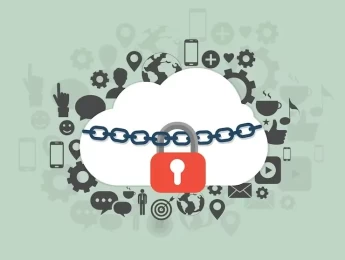The retail industry is extremely vast and contains a flurry of ever-changing and evolving markets. For a business to remain relevant and maintain its standing, there needs to be a strong emphasis on how the physical stores function.
Retail stores are fast-paced and require managers who can keep up with employee issues and customer needs. They need to be highly competent at problem-solving and decision-making to ensure all team members are able to carry out their responsibilities. To cope with the unpredictability of customers and the public, managers must be equipped with strong communication skills to potentially defuse conflict and resolve unpredicted problems.
Managers are also responsible for the state of their team. To work as efficiently as possible, employees need every opportunity to develop their competencies. Managers should be innovative in creating action plans for team development and available to offer coaching to those whose work performance is not up to standard.
Upon completion of this course, participants will be able to:
- Understand the importance of retail management.
- Develop advanced problem-solving and decision-making skills.
- Effectively delegate tasks based on an employee's strengths.
- Provide constructive coaching to weaker performers.
- Improve personal communication abilities.
- Recognise employees’ personal motivations and provide incentives concerning them.
- Assess risks and internal and external influences on productivity.
- Deliver exceptional customer service.
- Maintain adequate records of inventory.
This course is designed for anyone who aspires to develop their skills and knowledge about shop floor and retail management. It would be most beneficial for:
- Retail Managers
- Shop Supervisors
- Regional Managers
- Sales/Commercial Supervisors
- Sales/Commercial Managers
- Team Leaders
- Operations Managers
- Retail Franchise Owners
- Customer Service Managers
This course uses a variety of adult learning styles to aid full understanding and comprehension. Participants will review case studies of successful retail stores to highlight areas of importance in management.
They will be provided with the ideal tools needed to carry out the given learning exercises. These case studies will aid participants in digesting the knowledge taught through presentations and practical exercises, as they can apply the information to genuine real-world examples. Furthermore, they will partake in group activities to implement this information and develop the learned skills. They will have the opportunity to offer and receive feedback from one another to gain a full and comprehensive understanding of the topics.
Day 5 of each course is reserved for a Q&A session, which may occur off-site. For 10-day courses, this also applies to day 10
Section 1: Responsibilities of Retail Management
- Defining the roles and responsibilities of retail managers.
- The fundamentals of leadership and management.
- Balancing team dynamics and ensuring effective communication throughout.
- Building integrity, trust, and overall positive relationships with employees.
- Managing change to guarantee maximum performance.
Section 2: Innovative Decision-Making
- Analysing problems and assessing potential risks.
- The process of effective problem-solving.
- Effectively assess issues and make decisions to resolve them before productivity is impacted.
- Factors that influence innovation.
- Techniques to invoke innovation to aid in resolving customer issues.
Section 3: Communication and Interpersonal Skills
- Identifying ways of communication – verbal, non-verbal, and written formats.
- Defining the three communication barriers – linguistic, psychological, and emotional.
- Utilising PACT – Powerful Active Communication Techniques.
- Using effective language to defuse conflict and overcome employee resistance.
- Conducting team meetings to offer praise and rewards and to establish further goals and objectives.
Section 4: Developing a Team
- Evaluating team dynamics and identifying conflicting personalities.
- Understanding the ideal to communicate on an individual basis and as a team.
- Recognising and creating plans for group improvement and development.
- Providing coaching to those performing below expectations.
- Offering and receiving constructive criticism.
Section 5: Time Management and Task Delegation
- The principles and benefits of effective time management.
- Methods and techniques to maintain effective time management.
- Delegating tasks to those most suitable for the responsibility.
- Identifying when it’s appropriate to assign tasks less suited to employees in hopes of developing their skills.
- Effective inventory record keeping ensures no time or productivity is wasted on unusable products.
Upon successful completion of this training course, delegates will be awarded a Holistique Training Certificate of Completion. For those who attend and complete the online training course, a Holistique Training e-Certificate will be provided.
Holistique Training Certificates are accredited by the British Assessment Council (BAC) and The CPD Certification Service (CPD), and are certified under ISO 9001, ISO 21001, and ISO 29993 standards.
CPD credits for this course are granted by our Certificates and will be reflected on the Holistique Training Certificate of Completion. In accordance with the standards of The CPD Certification Service, one CPD credit is awarded per hour of course attendance. A maximum of 50 CPD credits can be claimed for any single course we currently offer.
- Course Code IND09-106
- Course Format Classroom, Online,
- Duration 5 days














